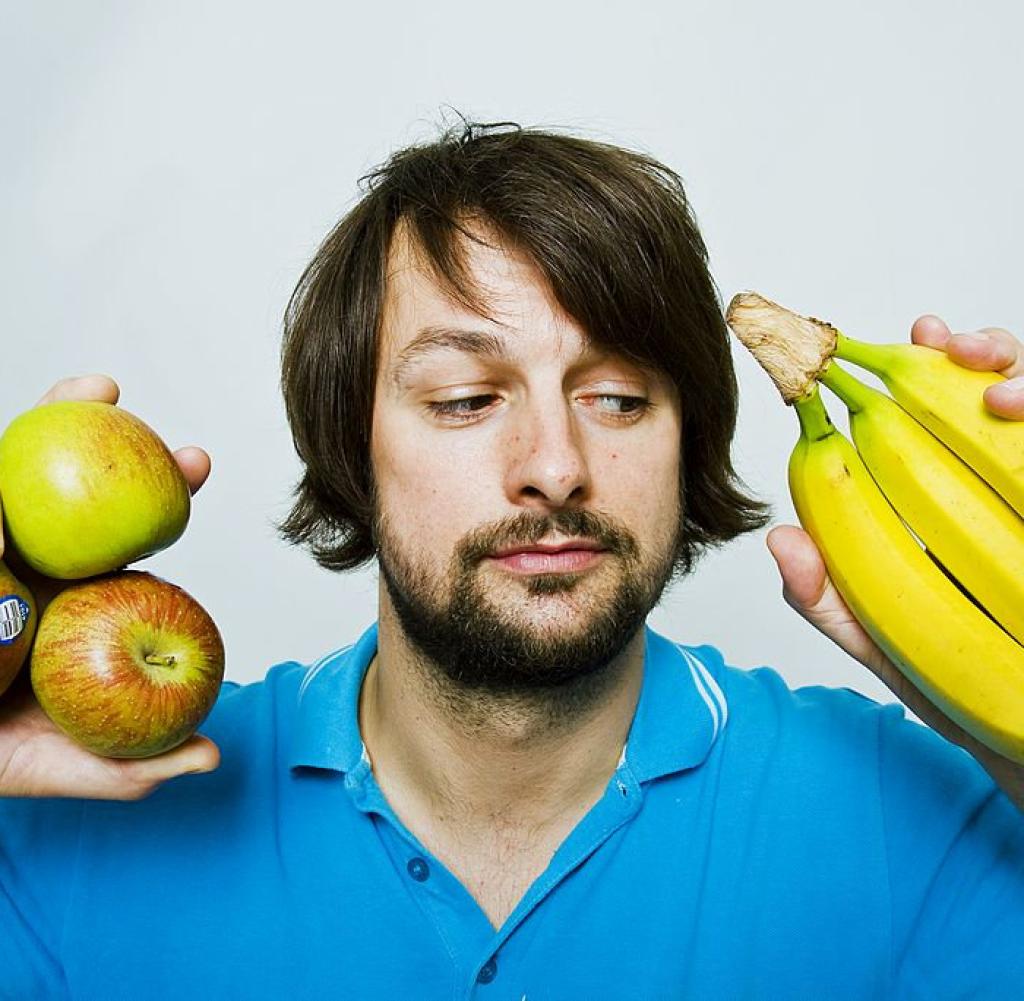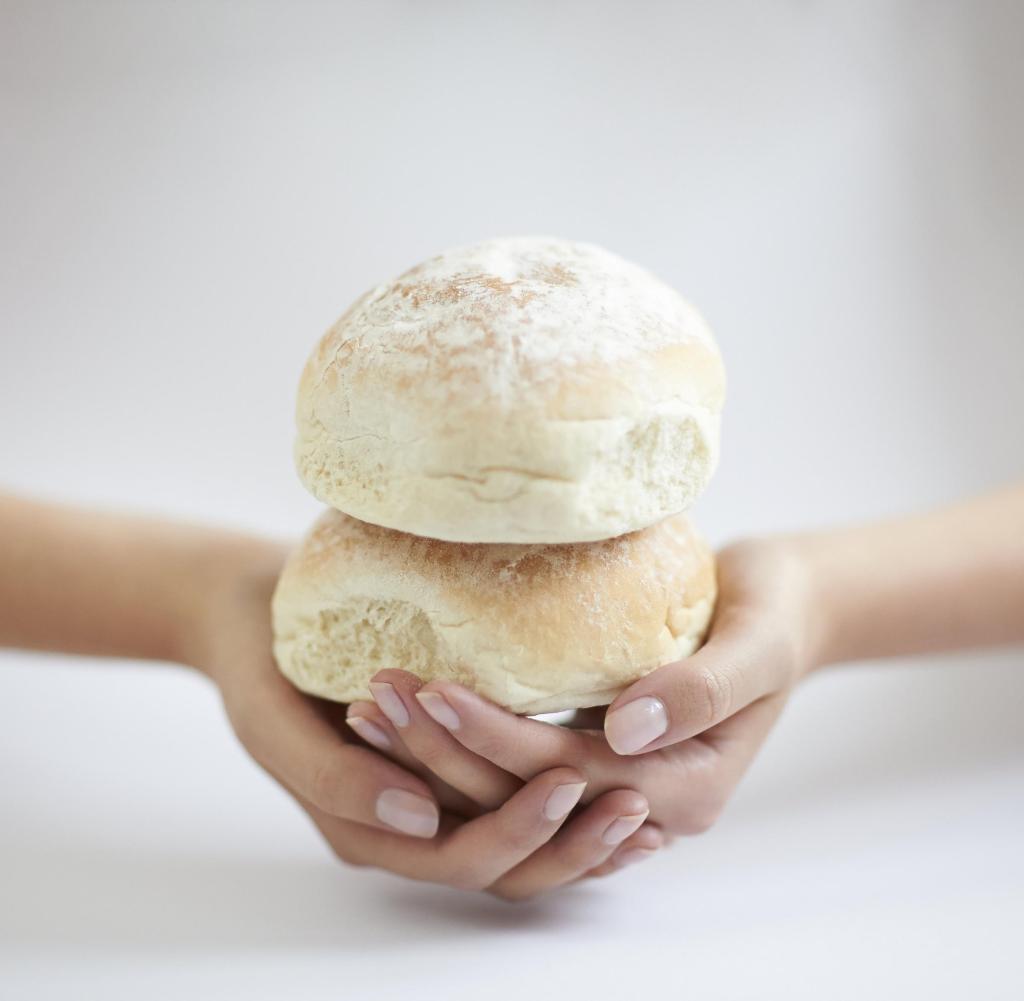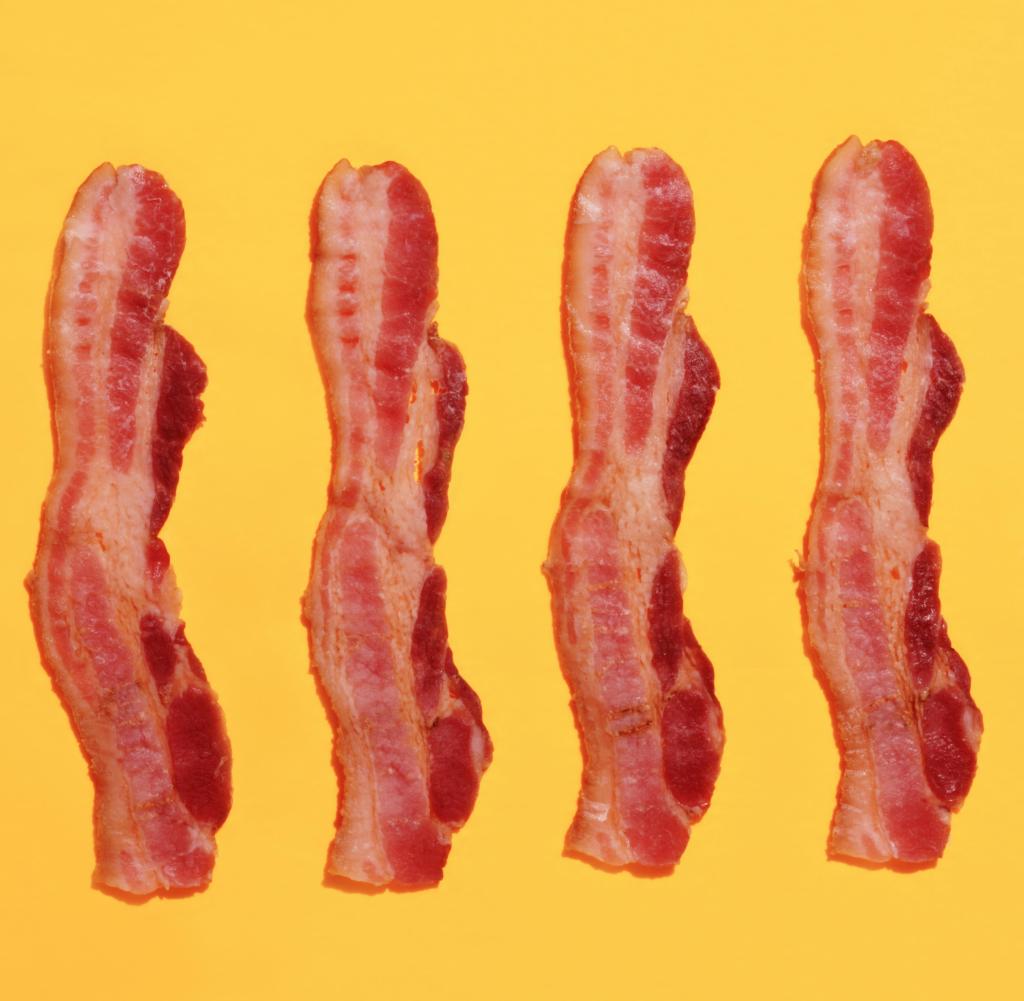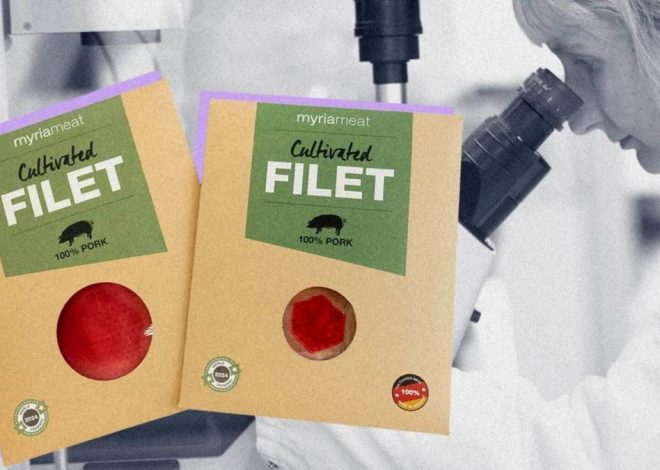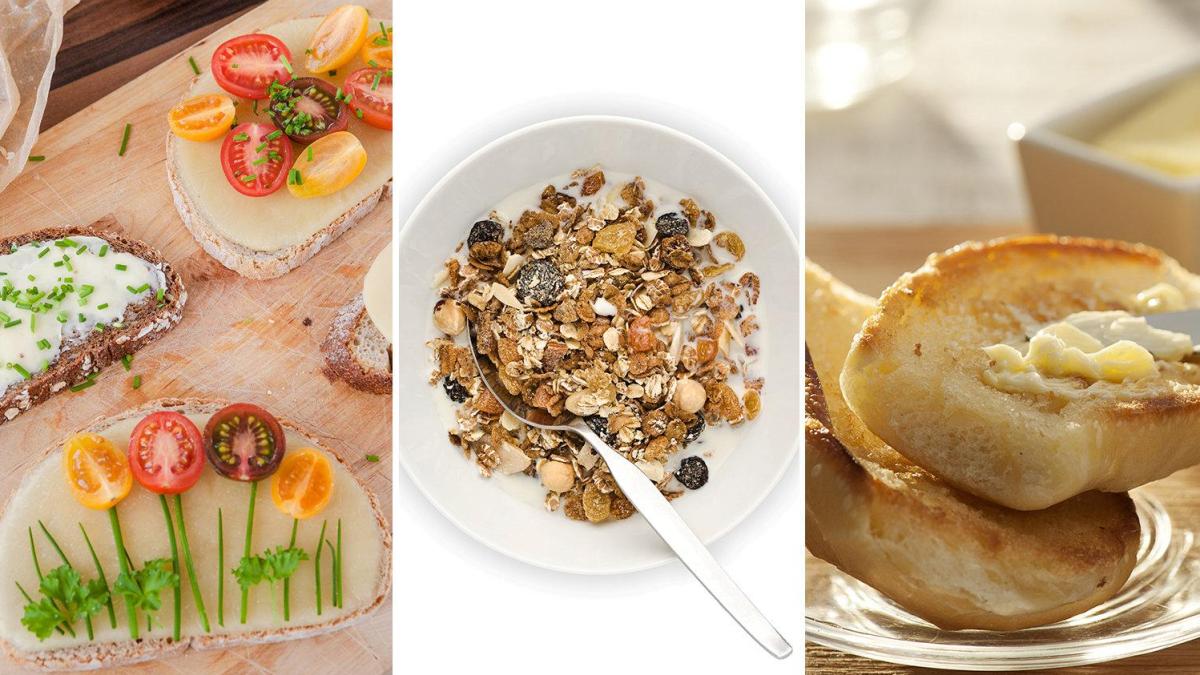
Nutrition: How the body decides what we eat in the morning
EObservation: For breakfast there are rolls with jam or bread with cheese, sausage. Or muesli or oatmeal. Or boiled egg or fried egg. And the next day, as a matter of course, there is the same thing, bread or eggs or cereal, and then again and again.
Often all parameters have to be adhered to meticulously. So cook the egg for five minutes, but not four or six minutes. Or first put jam on the bun and then cheese and never Orange jam. Or smoked ham, but no other sausage. And beware the order gets mixed up, that can ruin half the day. Isn’t that strange, completely contrary to our eating habits?
Because all you have to do is imagine if there were pasta or potatoes every lunch or evening. After three days we would be bored, after four we would be suspicious, after five days we would be tired of the meal and at least grumpy. Food should be varied, original, and should only be repeated at appropriate intervals. Variation is habit. It’s just completely different in the morning. What we accept at breakfast, even make it a condition, is frowned upon at any other time of day. Why?
This eating habit has so far hardly been recorded in the extensive nutritional research. Certainly several factors play a role, physiological, psychological, cultural. “Breakfast is less conducive to community than lunch,” says Gunther Hirschfelder, cultural nutrition researcher at the University of Regensburg. It leads to individual behavior, especially since the number of singles is increasing.
A greater routine is required in the morning because time is short. That’s why breakfast traditionally has more cold components and few warm components in its preparation. “And we have a higher stress factor in the morning. Stress always leads us to develop nutritional routines.” The day brings appointments, tasks and imponderables. Rituals create order, eating and drinking creates emotional security, says Hirschfelder. There is satisfaction in repeating the ritual: every Nutella bread and every portion of oatmeal is a devotion.
Source: Getty; Infographic WORLD
That’s why people eat conservatively in the morning instead of progressively and sometimes stay true to the habits they learned from their parents as children. Despite all the other experimentation with food, practically no breakfast habits are adopted from other cultures. Hardly anyone in this country would constantly try to eat soup in the morning like in Asian countries – even though Asian soups are considered hip and healthy at other times of the day.
Proof of the ritualization thesis: As soon as there is more time, the social function and also the food changes. At the weekend, families, couples and singles celebrate the big breakfast. Then there is a wide range of options, the stove is used to prepare, for example, Ottolenghi scrambled eggs or American buttermilk pancakes. When guests show up for brunch, there is also an element of originality in play – just a departure from routine.
Hirschfelder calls it “status representation through eventization.” What is normal in the evening is only practiced as an exception in the morning.
“Overweight people leave the house without breakfast”
The doctor and nutrition expert Daniela Kielkowski has a clear opinion on the “perfect” breakfast.
Source: WELT / Kevin Knauer
Of course, morning mania is not unchangeable. Many people change the rules after a while; they now have porridge instead of bread or a fruit smoothie instead of a boiled egg. But the cycles are surprisingly long considering the other food variations. You regularly return to your original habits and enjoy it. The old patterns awaken positive memories and promise security.
But the morning diet can also be explained by the body’s needs. “The stress hormone cortisol from the adrenal gland is at its highest in the morning, which is what you need to wake up and get going,” says Kerstin Oltmanns, professor of psychoneurobiology at the University of Lübeck. The doctor also points to the calming, stress-reducing effect of always repeating the same processes. Food intake in the morning is more affected by a lack of energy than other meals.
You fast overnight; your body needs quickly available energy. What works best is sugar, which goes straight into the blood, and high-calorie fat, says Oltmanns. Sugar has also been proven to lower cortisol levels. Hence the morning preference for jam rolls, chocolate croissants and muesli with honey. Other foods, especially proteins – such as those found in legumes – have to be broken down first, which takes time.
Source: Getty; Infographic WORLD
The metabolism is also different than at other times of the day. What is consumed at breakfast is transported very strongly into the cells. A 2020 study at the University of Lübeck showed that the body uses the same food differently in the morning than in the evening. Test subjects were given large or low-calorie meals to eat at different times of the day. Blood values were then determined. Blood sugar and insulin levels rose significantly less after breakfast compared to dinner, regardless of what was eaten. The body burns significantly more calories in the morning than at other times of the day.
In relation to breakfast habits, this means that because the body needs a lot of energy in the morning, the choice of food is limited. The supply of the same is sufficient. At lunchtime or in the evening, on the other hand, although hunger arises, the body is already satisfied with its quick needs. Now he is ready for as much variety as possible in his food; the intake of a wide variety of products and substances is desirable. This leads to the need for variety.
“If you have had a lot of breakfast, you will be less hungry even in the afternoon or evening,” says Oltmanns. If you don’t eat enough breakfast, you’ll have cravings, and your appetite for sweets will continue to grow throughout the day. So it makes sense to have breakfast to lose weight and not skip meals. All the snack boxes that are in offices are a reaction to the increasing number of intermittent fasters or breakfast skippers and an indication of increased stress levels among employees.
Oltmanns also deals with overweight people. She is skeptical about the trend towards intermittent fasting to lose weight. Data shows that it does not result in long-term weight loss. Because enforced rules are often not maintained in the long term. In fact, she says, the things that work best for breakfast are things you like to eat.
A fixed daily routine and rituals
In evolutionary terms, breakfast is a response to the body’s needs. But it is not absolutely necessary to eat straight away in the morning; it is comparatively easy to skip it. Paleoanthropologists have found no clear evidence that early humans ate in the morning. Perhaps the first thing he had to do when he woke up was to look for food or hunt.
“We know next to nothing about the meal chronology of the Long Stone Age,” says Gunther Hirschfelder. With settling down around 10,000 years ago and the beginning of agriculture and livestock breeding, a chronology began and the day took on a sequence. The first references to breakfast come from classical Egypt; the so-called mouthwash was a morning meal. “All pre-modern societies up to the 19th century and in rural areas up to 1930 are thoroughly chronologized and thoroughly ritualized,” says Hirschfelder. The daily routine shaped life.
In Central Europe, porridge and puree dishes were common in the morning for a long time, sometimes with animal fats, lard or goose meat. Bread was more difficult to produce and was considered more noble. Until recently, eating habits and food offerings were not questioned. The change also has to do with the greatly expanded variety: if you have avocados, for example, you can leave out cold cuts.
Individualization and dietary restrictions have only led to changes in the last few decades. Ritualized breakfast habits now include avoiding meat or animal products, avoiding sugar, and skipping breakfast altogether. The result is further repetition. There is a good feeling of doing the right thing.
The psychologist and neuroscientist Soyoung Park from the German Institute for Nutritional Research in Potsdam deals with decision-making. In 2017, Park was involved in two breakfast studies in which test subjects were confronted with unfair offers after breakfast; It was a game for two people to share sums of money. Those who ate more carbohydrates were more likely to reject the unfair offers. On the other hand, those who had more protein for breakfast were more willing to take up the offer.
Conclusion: Food has an influence on the neurotransmitters available in the brain and can shape decisions. This is especially true if, like in the morning, the diet is always the same.
One final influence of breakfast conservatism on the day: Psychologists have studied so-called decision fatigue, which has been shown to decrease over the course of the day. Kerstin Oltmanns points out how difficult it would be if you had to think about what to do every day when you got up, shower or wash, first coffee, then brush your teeth or vice versa? And what breakfast?
As US President, Barack Obama explained his morning habits like this: “I don’t want to make decisions about what I eat or what I wear. Because I have too many other decisions to make.” Anyone who appreciates the same breakfast every day will not necessarily become president, but will be willing to make more decisions throughout the day.
According to reports, there was only 45 minutes of exercise in the White House, then eggs, potatoes, toast and no coffee.
This article was first published in July 2021.

Ethel Purdy – Medical Blogger & Pharmacist
Bridging the world of wellness and science, Ethel Purdy is a professional voice in healthcare with a passion for sharing knowledge. At 36, she stands at the confluence of medical expertise and the written word, holding a pharmacy degree acquired under the rigorous education systems of Germany and Estonia.
Her pursuit of medicine was fueled by a desire to understand the intricacies of human health and to contribute to the community’s understanding of it. Transitioning seamlessly into the realm of blogging, Ethel has found a platform to demystify complex medical concepts for the everyday reader.
Ethel’s commitment to the world of medicine extends beyond her professional life into a personal commitment to health and wellness. Her hobbies reflect this dedication, often involving research on the latest medical advances, participating in wellness communities, and exploring the vast and varied dimensions of health.
Join Ethel as she distills her pharmaceutical knowledge into accessible wisdom, fostering an environment where science meets lifestyle and everyone is invited to learn. Whether you’re looking for insights into the latest health trends or trustworthy medical advice, Ethel’s blog is your gateway to the nexus of healthcare and daily living.


